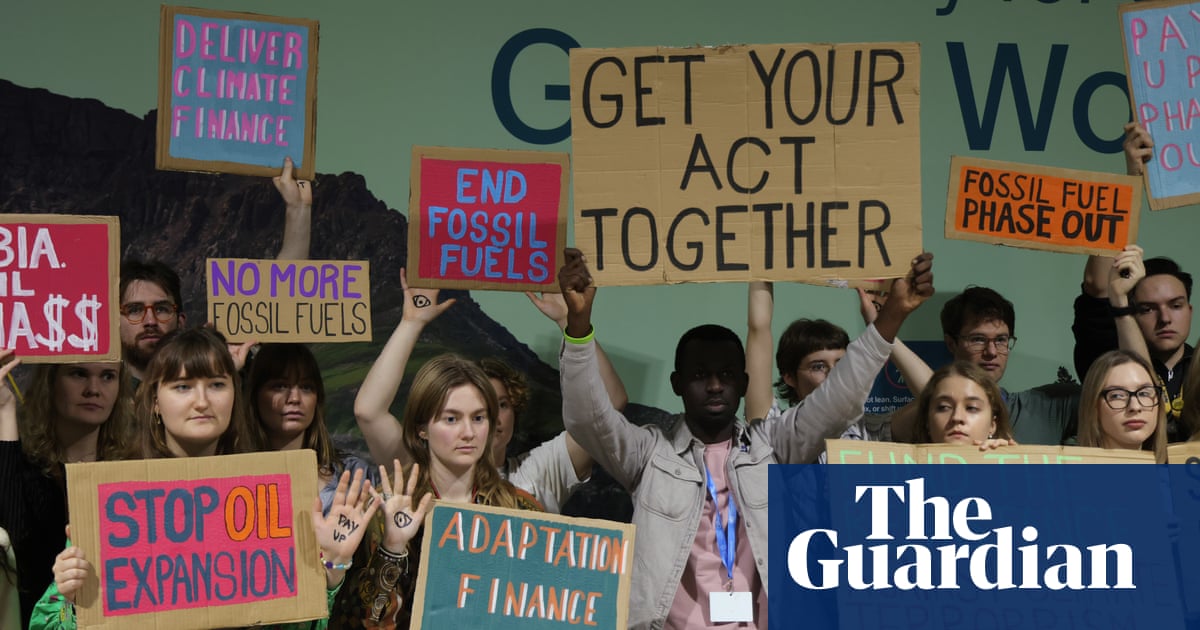Crucial United Nations climate talks this year will be a “slightly uphill battle” due to economic turmoil andDonald Trump’s removal of the US from the effort to tackle global heating, the chair of the upcoming summit has admitted.
Governments from around the world will gather in Belem,Brazil, in November for the Cop30 meeting, where they will be expected to unveil new plans to deal with the climate crisis and slash greenhouse gas emissions. Very few countries have done so yet, however, and the world remains well off track to remain within agreed temperature limits designed to avert the worst consequences of climate breakdown.
It’s not clear what, if any, presence the US will have at the talks after Trump, who calls climate change “a giant hoax”,removed the world’s leading economic power from the Paris climate agreementand set about demolishing environmental regulations at home. A trade war triggered by Trump has also caused concerns over a global economic downturn, further distracting leaders from the task of cutting emissions.
This backdrop will make the Cop talks challenging, its president André Corrêa do Lago conceded. “I think it’s going to be a slightly uphill battle,” the Brazilian diplomat said in New York on Tuesday. “Let’s say that the international context could help a little more.”
Asked about the fear that other countries will also scale back their plans to address the climate crisis, Corrêa do Lago said that none have said they will do so officially. “But there is obviously some that say, ‘God, how am I going to convince my people that I have to try to lower emissions if the richest country in the world is not doing the same?,’” he said. Corrêa do Lago said that invites have yet to be sent to the US, so he does not know who will attend from theTrump administration.
The focus at Cop, Corrêa do Lago said, will be on highlighting how the shift to cleaner energy and protecting forests provide tangible economic benefits to people. “That’s why we wanted to be a Cop of solutions, a Cop of action, and not so much a Cop in which you’re going to negotiate documents that you don’t know if they’re going to be implemented,” he said.
“We negotiated so many things under the Paris accord, including about renewables, about energy efficiency, about transitioning away from fossil fuels, about ending deforestation. I believe that there are enough agreements on those things, now we have to translate that into the economy and into people’s lives.”
Countries will again discuss climate finance at Cop30 but there remains a “very strong divide” between developed and developing countries on this issue, Corrêa do Lago said, with poorer nations urging those countries most responsible for the climate crisis to provide more funding to help deal with the impact of flooding, heatwaves, droughts and other mounting disasters. Small Pacific island states alsorecently called for rich countries to hurry upand submit their new climate plans.
China, the world’s largest greenhouse gas emitter, is “demonstrating an absolute conviction that it’s the right way to go and to incorporate climate into their economic growth”, according to Corrêa do Lago. Xi Jinping, China’s president,has saidthat his country will “not slow down its climate actions” despite Trump’s backtracking on cutting carbon pollution.
Corrêa do Lago was speaking at a BloombergNEF event which featured several gloomy comments from speakers about the US’ retreat from dealing with the climate crisis and the uncertainty this has caused for clean energy developers.
States, cities and businesses within the US are still pushing ahead with the energy transition despite Trump’s actions, insisted Gina McCarthy, Joe Biden’s top climate adviser.
“Yes we need to recognize that we have a president who wants to deny climate, yes we have tremendous challenges moving forward but we have incredible opportunities,” McCarthy said.
“Clean energy is not gone, it may have gone quiet but businesses are still jumping in to make the investments to protect our future and our kids. That is what gives me hope.”
